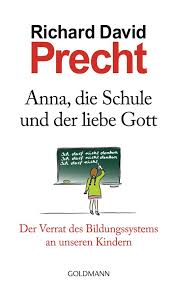S O C I A L P R A C T I S E : N E W E A R T H
F R O M E G O T O E C O
Tatjana Borodin
0978525
S O U R C E S
1. S O U R C E : G L O B A L F O O T P R I N T N E T W O R K
What is it:
Earth Overshoot Day is an initiative of Global Footprint Network, an international research organization that is changing the way the world measures and manages its natural resources.
Why:
To learn more about sustainability, collecting data and using their footprint calculator as guidelines for our social research.
Most important information:
2. S O U R C E : R. D. P R E C H T - A N N A , D I E S C H U L E U N D D E R L I E B E G O T T
What is it:
A book by the german star-philosopher Richard David Precht, that explains about the history of schools and today’s average school system, as well as the newest insights in children’s psychology and suggestions for more efficient education.
Why:
To learn more about the modern education system and its goals.

Most important information:
The average european education system as we know it today roots in the 19th century and barely changed in the 20th century. The humanist, Wilhelm von Humbold, whose ideas determined the common education system, saw the most important function of education “to make the formation and maturation of ones personality possible”. (p.33) Thereby the students should learn responsibility for themselves, as well as others, should learn how to participate and to think outside of the box. (p.34). Precht defines education as the ability to connect various aspects productively in order to develop numerous, individual thoughts. (p.47). In addition to that, he stresses out the importance of certain key qualities such as the capability of social competency, leadership, enforcement, self management, interdisciplinary thinking, verbal and nonverbal communication, cooperation and conflict resolution. The primary goal, which not just Precht, but also Kant hold an opinion in is to teach students to be self-determined and responsible human beings.
The biggest influence on the success of school and education has the teacher.
3. S O U R C E : E U R O P E A N C O M M I S S I O N
What is it:
The European Commission is the executive of the European Union and promotes its general interest.
Why:
To learn about the biggest causes of climate change and waste policy of the EU.
Most important information:
In 2010, total waste production in the EU amounted to 2,5 billion tons. From this total only a limited (albeit increasing) share (36%) was recycled, with the rest was landfilled or burned, of which some 600 million tons could be recycled or reused.
Only 40 % of it is reused or recycled and in some countries more than 80% still goes to landfill
If we re-manufacture, reuse and recycle, and if one industry's waste becomes another's raw material, we can move to a more circular economy where waste is eliminated and resources are used in an efficient and sustainable way.
Improved waste management also helps to reduce health and environmental problems, reduce greenhouse gas emissions (directly by cutting emissions from landfills and indirectly by recycling materials which would otherwise be extracted and processed), and avoid negative impacts at local level such as landscape deterioration due to landfilling, local water and air pollution, as well as littering.